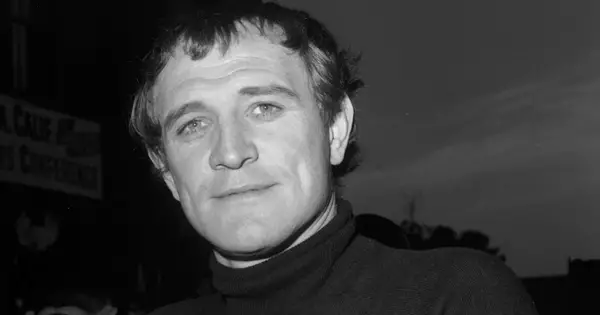Richard Harris was a man who made being a raucous rebel look effortlessly classy. With a twinkle in his eye and a pint in his hand, this Irish superstar was as legendary for his on-screen performances as he was for his off-screen antics.
Despite his larger-than-life personality, Harris had a serious side too. He was known to be incredibly passionate about his craft and didn’t shy away from speaking his mind.
Early life in Ireland
Harris was born on October 1, 1930, in Limerick with seven brothers and sisters, and learnt from an early age that he had to shout and ‘create’ to get attention.
He said he always felt neglected by his parents.
He was well known as a fast-living, fun-loving man who loves his drink. This started in his teenage years.
He told a story of when he was 17, he had to drive a haulage truck to Dublin from Limerick. He stopped mid-journey at a pub. As he was driving later, ahead of him was a low bridge (12 foot clearance). He carried on to the bridge and lifted it off its pillars. He told the police officer;
“Sorry, officer. You see, I’m just delivering this bridge to Limerick.”
Stage career
Shortly after this, he moved to London, to study at the London Academy of Music and Dramatic Art (LAMDA). Here, he honed his craft and developed the skills that would eventually earn him critical acclaim.
He made his West-End stage debut in 1956 with the play “The Quare Fellow,” a performance that marked the beginning of a remarkable stage career with many roles on stage in London and around the UK.
He loved the life that London gave him – he was a womaniser and had many affairs, and his love of drink continued.
Harris’s Break into Film

After nearly a decade working in theatre, Harris then broke into films.
His first film role was a small part in Alive and Kicking (1959), followed by Shake Hands with the Devil (1959), a film set in 1920s Ireland about the conflict between the IRA and British forces.
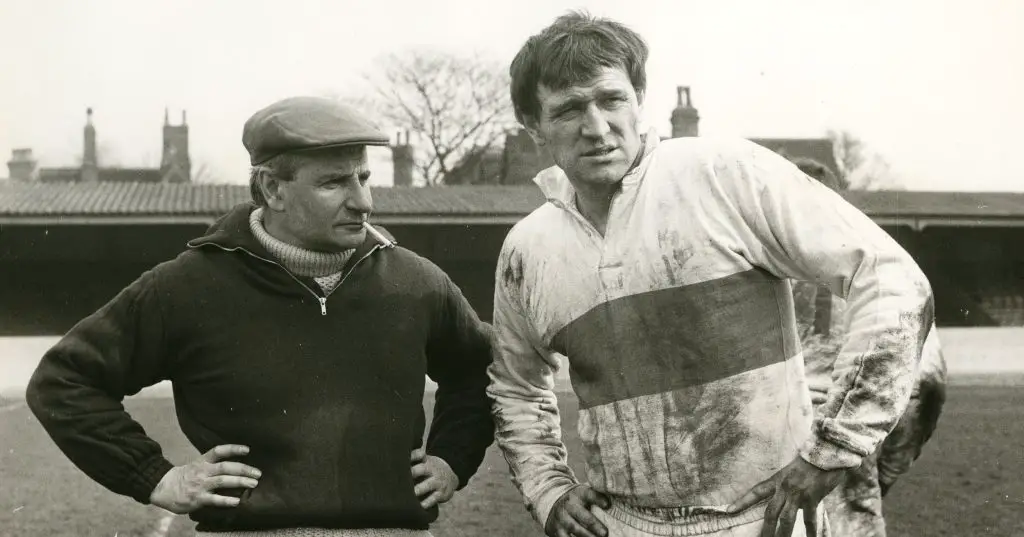
His big break in movies came with the role of Frank Machin in This Sporting Life (1963). Harris’s portrayal of a coal miner turned rugby player earned him his first Best Actor Oscar nomination and showcased his ability to delve into the emotional depths of a character. He also won the Best Actor Award at the 1963 Cannes Film Festival.
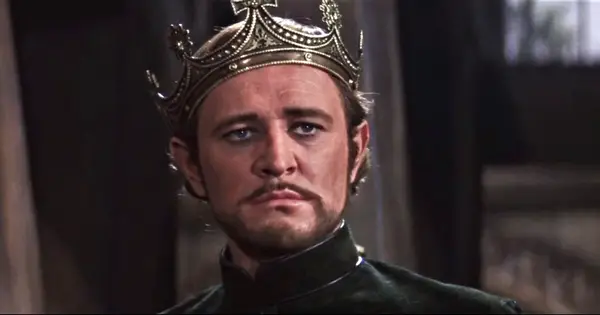
Harris’s break in Hollywood came with Camelot (1967). He portrayed the iconic King Arthur with regal charm. His performance as the legendary monarch added a touch of magic to the classic tale, showcasing his charisma and leaving a lasting impression on the film.
Notable Film roles throughout his career
His early performances led to many more movie roles. Some of the most memorable are listed below.
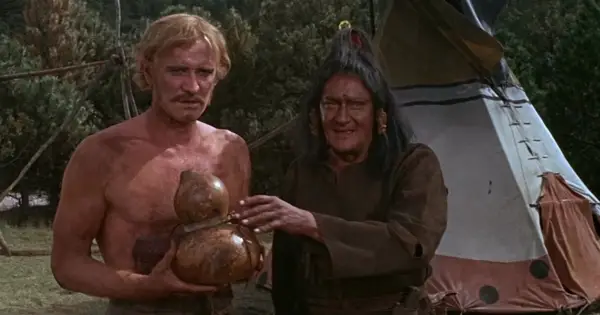
A Man Called Horse (1970): Harris played a British aristocrat captured by Native Americans and eventually accepted into their tribe after enduring physical abuse and humiliation. Harris displayed a powerful emotional range in his portrayal of a man adapting to a new culture.
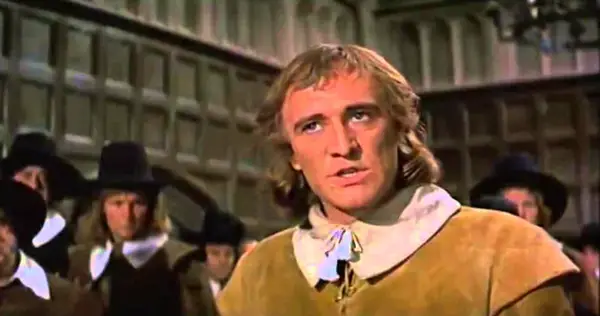
Cromwell (1970): Harris’s portrayal of the title role, Oliver Cromwell, in this historical drama showcased his commanding screen presence, capturing the essence of one of England’s most controversial figures.
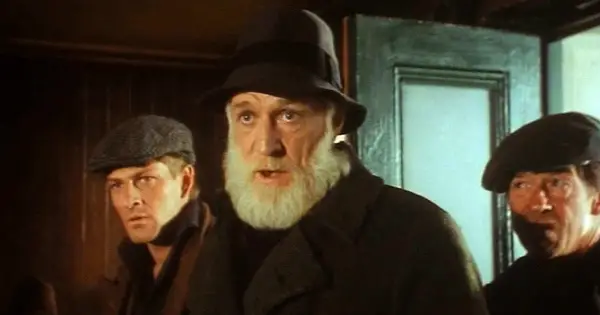
The Field (1990): In a captivating performance, Harris played a stubborn Irish farmer defending his land, earning his second Best Actor Oscar nomination and demonstrating his continued ability to deliver compelling characters.

“Gladiator” (2000): In a memorable supporting role as Roman Emporer and stoic philosopher, Marcus Aurelius, Harris made a lasting impact on the epic historical genre, contributing to the film’s grandeur with his strong presence.
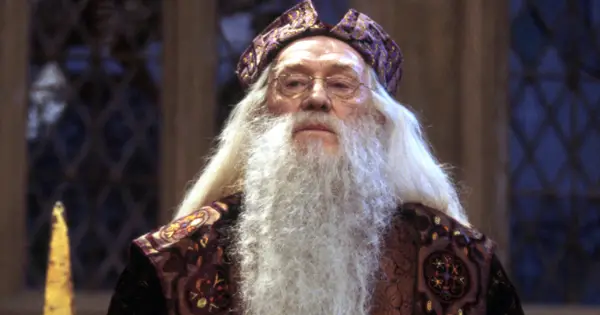
Harry Potter (2001-2002): In his portrayal of Albus Dumbledore, the wise and enigmatic headmaster of Hogwarts School of Witchcraft and Wizardry, Harris brought a sense of wisdom and mentorship to the iconic role.
Tragically, Richard Harris passed away in 2002, and the role was taken over by actor Michael Gambon, but his contribution to the early films, Harry Potter and the Sorcerer’s Stone and Harry Potter and the Chamber of Secrets, was a great asset to the world of wizardry and cinematic history.
Marriage
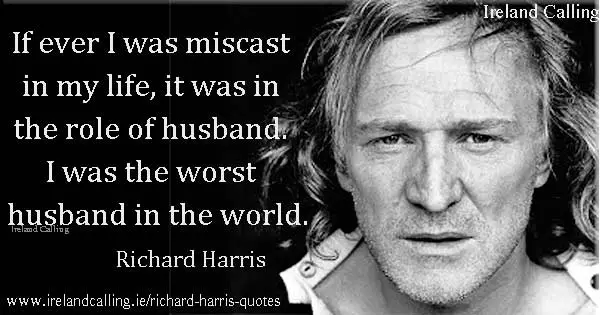
He married Elizabeth Rees-Williams, the daughter of a Liberal MP in 1957. His drinking became worse and often caused him to flare into terrible rages. He said he once picked up a wardrobe and threw it at Elizabeth when he was drunk. He often was taken to the local police station due to his inebriated state. They eventually divorced, but stayed friends until he died.
He also married Ann Turkel in 1974 but divorced in 1982, blaming the effects of the drink. Again, he remained friends with her until his death.
Harris said that it seemed as if he were two people – one gentle and caring who loved to read and write poetry, the other ‘a bit of a maniac’.
Harris becomes ill
By the late seventies, Harris’ drinking was causing fainting fits, and he was told by doctors if he continued drinking, it would kill him. He was also taking cocaine.
On one occasion, he was admitted to hospital and put on a life support machine, and a priest was called to give the last rites. He woke up, saw the priest and is reported to have said:
“Father, if you are going to hear my confession, prepare to be here for days. By the end of it, I can guarantee you will very much regret your vow of celibacy.”
After this episode, Harris said: “The crazy period of my life is over. Maybe things won’t be as exciting in the same way, but at least I’ll be able to remember them the next day.”
A daily glass of Guinness
He stayed off the drink and drugs until the nineties, then started having a glass of Guinness every day until his death. He became calmer and more reflective.
When he reached 70 years, he rented a suite in the Savoy Hotel, London for £6,000 a week. He thought this good value – he liked to be able to order food at any time of day or night and have it brought to him. He said:
“If you’re paying the mortgage on a home, you can’t ask the bank manager to fetch you a pint.”
Harris turned down Dumbledore
Richard Harris was 71 when he was offered the role of Professor Albus Dumbledore in the first Harry Potter film in 2001. He turned it down. His 11 year old granddaughter persuaded him to take the role, threatening to have nothing to do with him if he didn’t. He took the role.
After filming the second Harry Potter film in 2002 (headmaster, Dumbledore), he returned to live at the Savoy. He didn’t contact anyone for a while and his ex-wife Elizabeth became worried and went to the Savoy, where she found him emaciated and weak. She called for an ambulance. As he was being stretchered out in the lobby of the hotel, he sat up and said:
‘It was the food! Don’t touch the food!’
Harris died of Hodgkin’s lymphoma on 25 October 2002, having only been diagnosed in August of the same year. He was 72 years old.
In the end, Richard Harris lived life on his terms. He brought joy, laughter, and the undeniable charm of the Irish spirit to both the screen and the pub. His legacy lives on, not just in the movies he left behind but in the stories of his antics and that eternal quest for the perfect pint of Guinness. Sláinte!
There is now a film festival set up in his honour which celebrates the life and works of Richard Harris and those who follow in his footsteps. Richard Harris Film Festival
See the film This Sporting Life here (over 2 hours long)
Richard Harris FAQ
Richard Harris spent the last 12 years of his life living in a suite at the Savoy Hotel. He was such a beloved character that, after his death in 2002, The Savoy named one of their personality suites after him. You can stay there from upwards of £3555 per night. That’s around $4500.
Richard Harris had a net worth of around $20 million at the time of his death in 2002.
Richard Harris had three children with Elizabeth Rees-Williams; director, Damian Harris (1958), actor, Jared Harris (1961) and actor, Jamie Harris (1963).
No, Richard Harris did not receive a knighthood during his lifetime despite his significant contributions to the world of entertainment.
The cast of the “Harry Potter” film series, as well as those involved in the production, expressed their condolences and paid tribute to Richard Harris following his death in 2002.
Daniel Radcliffe, who played the title character, Harry Potter, spoke fondly of Richard Harris in interviews, describing him as a mentor and a kind figure on set. Radcliffe and Harris had formed a close bond during the filming of the first two movies.
Emma Watson (Hermione Granger) and Rupert Grint (Ron Weasley) also shared their respects for Harris, noting his warmth and wisdom while working with him.
The filmmakers, including Chris Columbus, who directed the first two movies, and David Heyman, one of the producers, expressed their admiration for Harris’s portrayal of Dumbledore and his significance to the early films.
Yes, Sean Connery and Richard Harris were indeed friends. Both Connery and Harris were highly regarded actors with successful careers, and their paths crossed both personally and professionally.
One notable collaboration between the two actors was the film “The Molly Maguires” (1970), in which both Connery and Harris starred.
Yes, Richard Harris had blue eyes. His striking blue eyes were one of his distinctive features that added to his charm and intensity as an actor.
